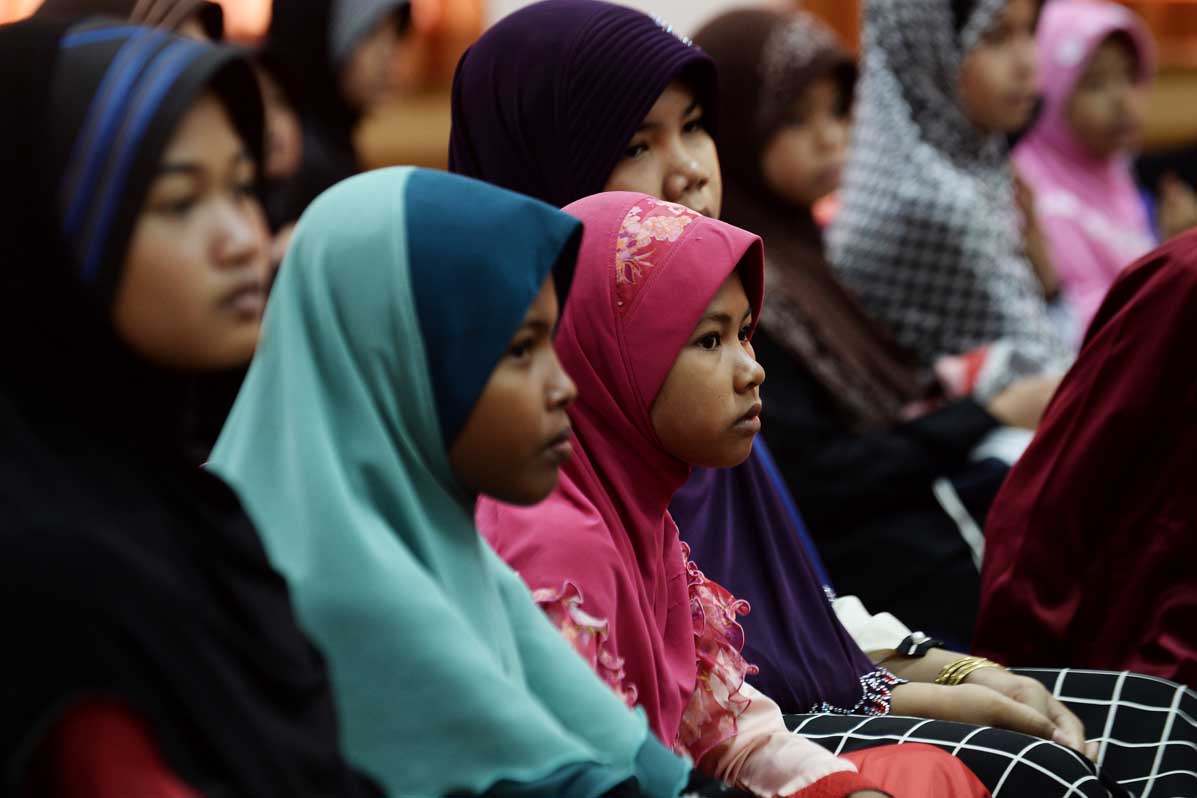Recently, The ASEAN Post wrote two articles on child marriages with a special focus on Indonesia and Thailand.
For the story on Thailand, named “Regulation seeks to end child marriages, but…” statistics gathered by the United Nation Children’s Fund (UNICEF) were cited. However, data for Brunei, Malaysia and Singapore were unavailable.
Despite data not being available for these three countries, it would seem that Malaysia - like Indonesia and Thailand - is also facing a problem as far as child marriages go.
Local reports in Malaysia had quoted Women’s rights group Sisters in Islam (SIS) as saying that it was alarmed by the Terengganu Shariah Court Chief Judge Wan Mohd Zakri Wan Mohd’s recent revelation that there were 444 applications for child marriages between 2013 to 2018, and on top of that, 397 of them were approved. This was for the state of Terengganu alone.
Reacting further to Wan Mohd Zakri’s comments, SIS had said in its statement issued to the media that it was “surprised” that the Terengganu Shariah Court Department had approved applications simply on the basis that the couple was “in love” and that the child “wanted” to marry. These involved a total of 252 applications.
“According to the Terengganu Shariah Court Department, the applications involved 522 children. SIS is extremely concerned that these numbers tells us that at least 125 of underage marriages in the state involved marriages to spouses who are much older in age.
“We are also worried that more than half of the approved applicants were below the age of 15, with up to 10 applications at the age of 13 approved,” SIS’s statement read.
All over Malaysia
But Terengganu isn’t the only state where child marriages are occurring and it certainly isn’t the state with the highest number of cases.
Between 2013 all the way to 30 June 2018, statistics from the Department of Shariah Judiciary Malaysia (JKSM) are alarming. The least number of cases are in Penang where the number is 91, followed by Melaka at 98, followed by Perlis at 116, followed by Negeri Sembilan at 169, followed by the Federal Territories at 189, followed by Perak at 286, followed by Pahang at 395, then Selangor at 418, then Kedah at 441, Terengganu at 444, Johor at 447, Sabah at 848, Kelantan at 877, and Sarawak at 974. While states like Sarawak are much larger and therefore hold a larger number of the population, it is worthwhile noting that Perlis – the smallest state in Malaysia – still outruns Penang and Melaka in its number of cases involving child marriages.
 Source: Department of Shariah Judiciary Malaysia
Source: Department of Shariah Judiciary Malaysia
What is interesting to note is that the number of child marriages – aside from the large state of Sarawak - are especially high in Kelantan, which shares a border with Southern Thailand’s Narathiwat. The reason this is important is because the marriage that kickstarted Thailand’s new regulation which aims to end child marriages involved an 11-year-old girl from the Narathiwat province and a 41-year-old man from Kelantan.
A spillover
While Thailand has at least attempted to take a step in the right direction towards ending child marriages with its new regulation, there is still a glaring loophole that brings into question the regulation’s redundancy: parents of the potential child-spouse may grant permission for their children to be married.
The irony comes in when considering the fact that in the very case which supposedly sparked the decision, the parents had consented to their 11-year-old daughter being married off to the 41-year-old Malaysian man.
Based on reports in Malaysia, the parents had apparently agreed to the marriage but had imposed a “condition” that their daughter would only be allowed to live with the “husband” when she turns 16. The case became a hot topic in Malaysia when the man’s second wife posted photographs of him and the girl and their alleged solemnisation ceremony.
The worry here is that if there are no strict laws prohibiting child marriages in both Thailand and Malaysia, cases will continue to pile up. Seeking permission from parents has thus far not been much of an issue for those who are bent on marrying children. It seems that to end this cycle will require a concerted effort from both countries.
Related articles:
